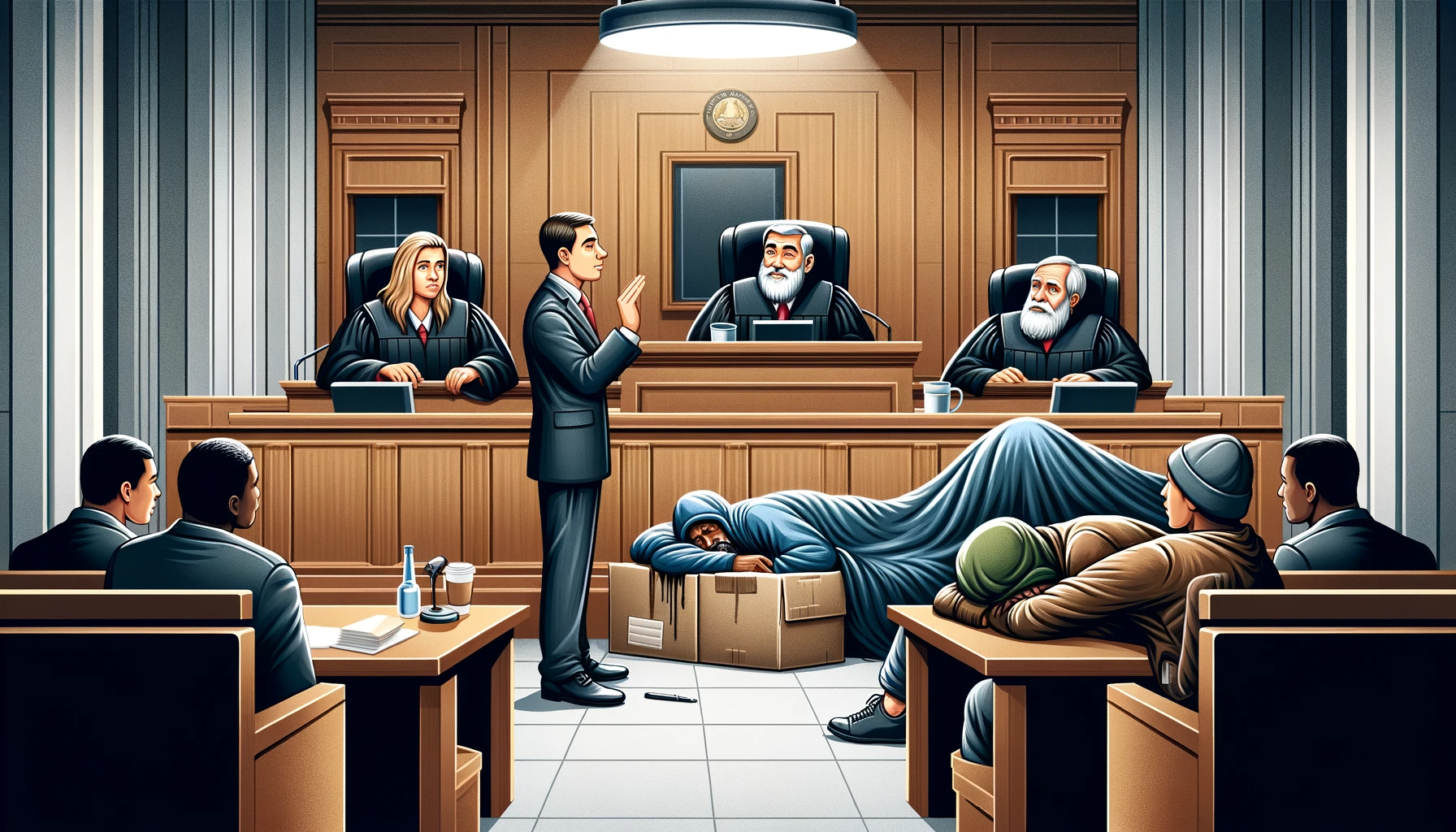
San Francisco—responding to a surge in homelessness—enacted time-and-place anti-vagrancy ordinances restricting sleeping in public places. But the district court enjoined the laws, and in Coal. On Homelessness v. City of San Francisco, No. 23-15087 (9th Cir. 2024), the 9th Circuit affirmed. Following two recent 9th Circuit cases, the court held that the city violated the Eighth Amendment’s prohibition on cruel and unusual punishment when it prohibited sleeping in public when there wasn’t another place to sleep.
The case is about two sections of the local police code, one that prohibits lying or sitting on public sidewalks from 7:00 a.m. to 11:00 p.m., and another that prohibits camping on public sidewalks at any time. The district court enjoined the laws for “as long as there are more homeless individuals in San Francisco than there are shelter beds available.”
Writing for the majority, Judge Koh affirms by noting that the city waived its arguments that the laws did not leave the homeless with nowhere else to go, and that the laws were enforced only within specified hours. The city argued this to keep within the precedent of two recent cases, Martin v. City of Boise, 920 F.3d 584 (9th Cir. 2019), and Johnson v. City of Grants Pass, 72 F.4th 868 (9th Cir. 2023), which held that day-long, city-wide prohibitions on homeless sleeping were unconstitutional. But the majority concluded that these were factual questions that needed to be developed in the trial court.
So the case was remanded for that determination. As Judge Koh noted, citing authority, it is important for factual questions to be developed first in the trial court because "two-level consideration" is more likely to yield the correct result. The reasons are that "more judges will consider" the issue, and that "trial judges often bring a perspective to an issue different from that of appellate judges." Judge Koh continued: “Allowing the district court to develop the record and consider the City's new arguments in the first instance makes it more likely that we will [get the law right]. Particularly because the City's attempts to distinguish this case from Martin and Johnson ultimately turn on factual questions, we are not inclined to reach these questions in the first instance.”
But in the meantime, the sweeping injunction—spanning even beyond the confines of the lawsuit—remains in effect.
This was too much for Judge Bumatay, who penned a dissent. Here are some of the good points raised in Judge Bumatay’s dissent:
Also note that the Supreme Court has agreed to review the Martin and Johnson decisions. That will undoubtedly affect the outcome of this case. (My prediction: The Court will reverse Martin and Johnson, citing Dobbs and concluding that the Court is no longer in the business of finding unenumerated constitutional rights unless supported by text, history, or tradition. And as Judge Bumatay catalogs in his dissent, there is no textual, historical, or traditional right to sleep on the sidewalk.)